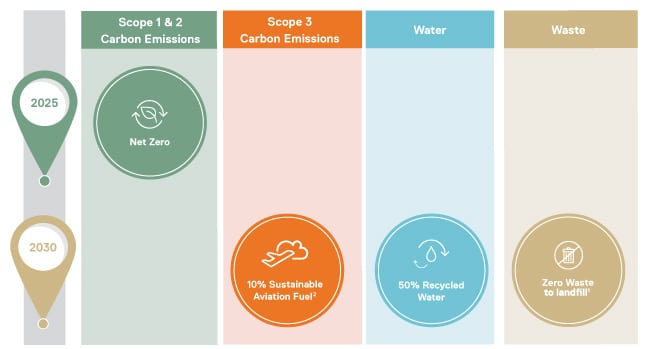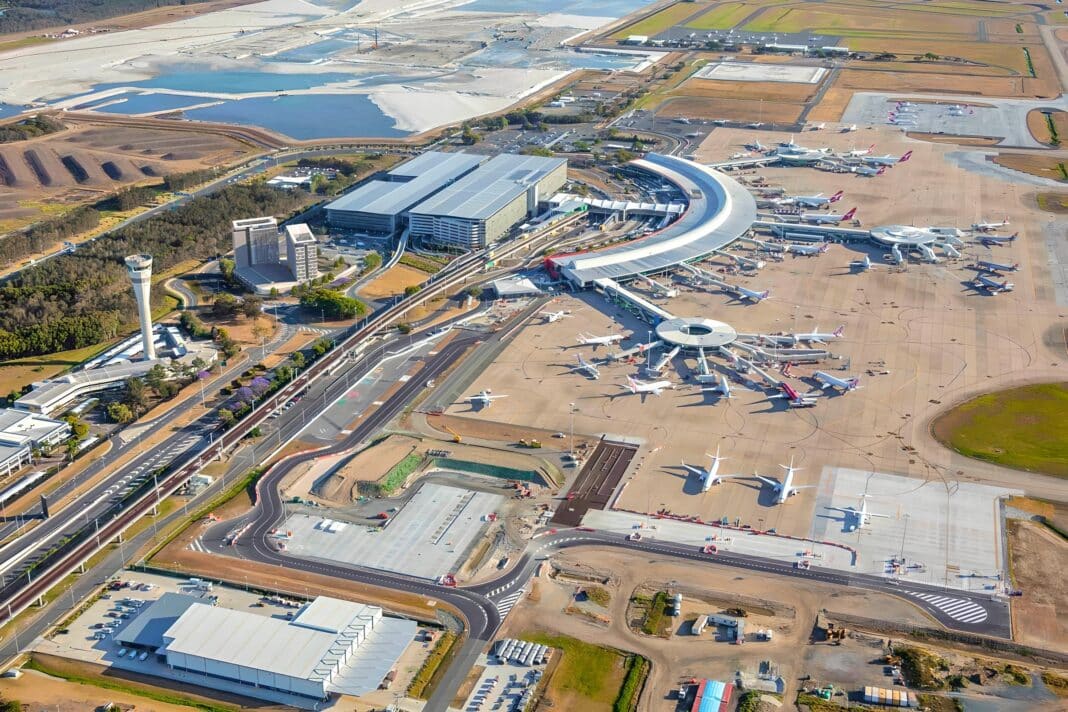The Brisbane Airport Corporation, which broke ground on Australia’s largest and most ambitious aviation project last month, is looking to mass timber, recycled concrete and green steel as it plans a third terminal.
That is according to airport executives who revealed to Wood Central that “all cards are on the table” after a project stakeholders’ meeting last month to discuss materials used in the massive build.
The new terminal, to be constructed “sometime in the early 2030s,” will be positioned between the two runways to maximise connectivity, with airport executives confirming that it will be “built with inclusive and sustainable design.”
The executives are also eyeing Wagner’s “Earth Friendly Concrete”, used extensively in the Brisbane West Wellcamp Airport, which in 2014 became the first greenfield public airport constructed in Australia since the mid-1960s.
But before it looks to Terminal 3, the airport’s two existing terminals will be subject to a complete refurbishment as part of a plan to make the domestic terminals “the most connected in Australia.”
Last month, the Wood Central publisher questioned whether the Brisbane Airport Corporation – which, in 1997, secured a 99-year lease over Australia’s third busiest airport – had erred by skipping on timber in its redevelopment plans.
The airport’s CEO, Gert-Jan de Graaff, said the $5 dillion dollar redevelopment is “an investment now to get ahead of the population growth curve, ready for 2032 and beyond.”
Wood Central reported that the only timber referenced in the design “is Spotted Gum furniture used in the gate departure lounges,” which seemed relatively regressive compared to major timber airport redevelopments worldwide.
However, airport executives refuted claims that the airport was dodging low-carbon materials. They confirmed that the existing steel, aluminium, and concrete shells would be retained as part of a “total brownfield retrofit of the terminals.”

In recent years, the airport has doubled down on its commitment to sustainability and, earlier this year, revealed plans to achieve “Net Zero” Scope 1 and 2 emissions by 2025 (25 years ahead of the original schedule), with Scope 3 fuel and water emissions to follow in 2030.
In 2018, the airport attracted global headlines when it installed the Southern Hemisphere’s largest solar panel installation across six sites.
On Scope 3 construction emissions, which, thanks to the COP28 Buildings Breakthrough, will be a consideration in future infrastructure, the executives said embodied carbon will be a crucial target in constructing Terminal 3.

The project, part of Brisbane Airport Corporation’s Future BNE plan, is managed by Lend Lease, which is responsible for the world’s most significant airport developments.
“In the past year, 20 million passengers travelled through Brisbane Airport, and we expect that to grow by 10 million passengers in the coming decade as Queensland’s population expands and our terminals need to be ready,” said Mr de Graaff.
“More than 20,000 people come to work at Brisbane Airport every day, and we forecast that to grow to 30,000 by the time the flame is lit at the Opening Ceremony for the 2032 Olympic and Paralympic Games.”






